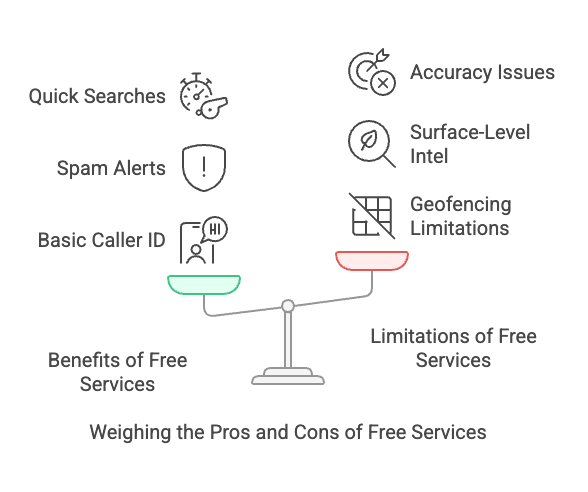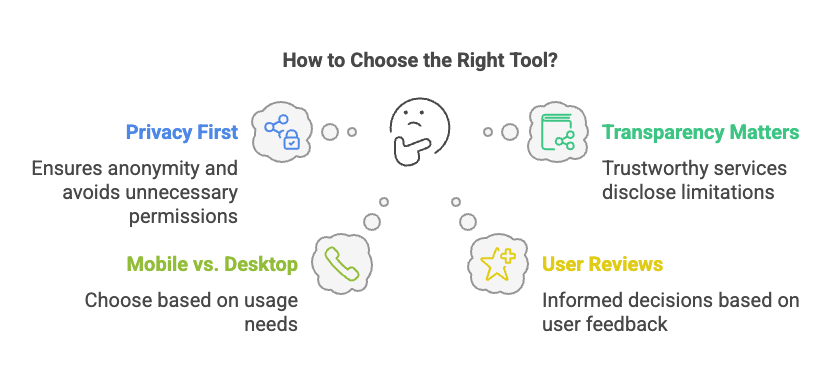Free Reverse Phone Lookup by Number Online
Let’s face it: your phone is a magnet for mystery. Between robocalls, scam attempts, and that one persistent unknown number blowing up your screen, figuring out who’s on the other end isn’t just handy—it’s survival. Enter free reverse phone lookup services, your digital detective squad for unmasking unknown callers. No fees, no fuss. Let’s cut through the noise and find out which tools actually deliver.
In this guide, we’ll break down the best free reverse phone lookup services, how they work, and their sneaky limitations. Plus, we’ll throw in pro tips to dodge sketchy “free” traps. Spoiler: You won’t need a credit card or a PhD in internet sleuthing.
🕵️♂️ What Exactly Is a Reverse Phone Lookup?
Reverse phone lookup flips the script. Instead of searching for someone’s number using their name (yawn), you plug in the digits and get details about the owner. Think of it as caller ID on steroids. These services comb through public records, carrier databases, and even community-contributed intel to spit out info like:
- the caller’s name (if available);
- their location (city/state);
- the phone carrier (looking at you, Verizon);
- whether it’s a landline, cell, or VOIP;
- a spam risk rating (so you can avoid “IRS agents” named “Steve” from Belize).
Need more deets like addresses or social profiles? That’s where paid upgrades come in—but we’ll stick to the freebies for now.
🛠️ How Reverse Phone Lookups Work: The Tech Behind the Magic
Reverse phone lookup tools aggregate data from diverse sources to build their databases. Here’s a breakdown of the process:
1Data Aggregation
Services compile information from public records, social media, and telecom carriers.
2Algorithmic Matching
Advanced algorithms cross-reference the input number with aggregated data.
3Real-Time Updates
Top services refresh their databases daily to ensure accuracy.
4Privacy Safeguards
Legitimate tools anonymize searches and comply with data laws.
Data Aggregation Process
Reverse phone lookup tools build comprehensive databases by aggregating information from various sources:
- Public Records: Voter registrations, property records, business registrations
- Social Media Profiles: Public profiles that link phone numbers to identities
- Telecom Carriers: Basic information about the number's carrier and location
- User Contributions: Community-reported information about spam numbers
Example: Truecaller's 450-million-user community actively flags spam numbers globally, enriching its database with crowd-sourced intelligence.
Algorithmic Matching Technology
When you enter a phone number, sophisticated algorithms spring into action:
- Pattern Recognition: Algorithms identify patterns in data connections
- Cross-referencing: The system checks the number against multiple databases
- Geolocation Analysis: Area codes and prefixes help narrow down results
- Carrier Intelligence: Information about the telecom provider offers context
Example: Intelius uses geolocation and carrier details to filter results, while Spy Dialer accesses telecom APIs for enhanced accuracy.
Database Maintenance and Updates
Keeping information accurate requires constant maintenance:
- Daily Refreshes: Premium services update their databases frequently
- Data Verification: Cross-checking information against multiple sources
- Automated Crawlers: Bots that scan public sources for new information
- Quality Control: Systems that flag inconsistencies or suspicious patterns
Example: NumLookup refreshes their databases daily to ensure accuracy, though free tiers may lag behind paid versions.
Privacy and Legal Compliance
Legitimate reverse phone lookup services implement robust privacy measures:
- Anonymous Searches: Queries are not linked to user identities
- Data Encryption: Protecting information during transmission and storage
- Compliance Frameworks: Adherence to regulations like GDPR and CCPA
- Opt-out Options: Mechanisms for individuals to remove their information
Example: NumLookup doesn't require sign-ups for basic searches, protecting user privacy while still delivering results.
🏆 The Top 7 Free Reverse Phone Lookup Services (No Credit Card Required)
Not all free services are created equal. Some are sleek, some are sketchy, and a few are shockingly good. Here’s the expanded lineup:
- NumLookup
The minimalist’s dream. No sign-up, no ads—just punch in a U.S. number and get a clean report with the owner’s name, carrier, and location. It even links to social media profiles if available. Try NumLookup. - Truecaller
Crowdsourcing meets caller ID. Truecaller’s 450-million-user army flags spam numbers globally. The app’s free tier offers unlimited lookups, auto-blocking, and spam statistics like call frequency and peak hours. Grab Truecaller. - Whitepages
The OG of phone lookups. With 260+ million numbers in its database, Whitepapes delivers reliable basics (name, location, carrier) and even sniffs out spam risks. Its premium tier adds criminal records, but the free version suffices for quick checks. - Spy Dialer
Straight out of a spy flick. This tool accesses unlisted numbers and even lets you peek at voicemails (creepy? Maybe. Cool? Definitely). It’s ideal for identifying telemarketers and verifying business lines. Test Spy Dialer. - USPhoneBook
A goldmine for reconnecting with long-lost contacts. It scours billions of records to link names and locations to U.S. numbers, including relatives and alternate phone numbers. - CocoFinder
A lesser-known gem, CocoFinder offers free lookups with details like email addresses and social media links. Its interface is cluttered with ads, but results are surprisingly thorough. - ESPY (Bonus Pick)
Touted as the top free OSINT tool for 2024, ESPY provides deep insights like criminal records and employment history. However, it’s geofenced to the U.S. and requires patience for slower searches.
🎁 What You Get (And What You Don’t) With Free Services
The Good Stuff:
- Basic Caller ID: Name, location, carrier, and line type (cell/landline).
- Spam Alerts: Community-driven flags (e.g., Truecaller’s “Spam Reports”) and automated risk ratings.
- Quick Searches: Legit tools like NumLookup deliver results in seconds, unlike fake services with endless loading screens.
The Catch:
- Geofencing: Most tools (e.g., Whitepages, USPhoneBook) only cover U.S. numbers.
- Surface-Level Intel: Social profiles, criminal records, and employment history require paid upgrades. For deeper dives, consider TruthFinder ($28.33/month) or BeenVerified ($14.86/month).
- Accuracy Roulette: Free databases may lag by weeks. A number listed as “active” could belong to a recycled SIM card.

🚨 Red Flags: How to Spot a Phony “Free” Service
Before you dive in, watch for these scams-in-disguise:
- Email Traps: Sites demanding your email before showing results (nope, nope, nope).
- Fake Progress Bars: Legit tools work in seconds. If a site takes minutes, it’s stalling to upsell you.
- Bait-and-Switch Paywalls: “Just $4.99 to see the name!”—stick to transparent services like NumLookup.
- Ad Overload: If pop-ups outnumber results, exit immediately. Spy Dialer and CocoFinder walk this line but still deliver.
⚖️ Legal and Ethical Considerations
Reverse phone lookups are legal in most countries, including the U.S., provided they’re used ethically. Key points:
- FCRA Compliance: Services like TruthFinder and BeenVerified aren’t FCRA-compliant, meaning their data can’t be used for hiring or tenant screening.
- Privacy Laws: GDPR and CCPA restrict data collection in the EU and California. Truecaller allows users to delist their numbers globally, even where not legally required.
- Ethical Use: Avoid harassment or stalking. Tools like Intelius explicitly prohibit misuse of their reports.
🤔 How to Pick the Right Tool (Without Losing Your Mind)
Privacy First
Legit tools like NumLookup and Truecaller anonymize searches and don’t store your queries. Avoid apps requesting unnecessary permissions (e.g., contact access).
Transparency Matters
Trust services that admit their limits upfront. USPhoneBook clearly states when deeper info requires cash, while shady sites bury disclaimers.
Mobile vs. Desktop
Apps like Truecaller offer real-time call blocking and voicemail access, perfect for on-the-go use. Desktop tools (e.g., Whitepages) suit detailed research.
User Reviews
Check app stores and forums. Truecaller boasts 4.4/5 on G2, while Reverse Lookup (iOS) has mixed reviews due to ads.

💡 Why Bother? Real-Life Uses for Reverse Lookups
- Silence Scammers: Identify high-risk numbers (e.g., “IRS” calls) and block them preemptively.
- Reconnect Safely: Verify if an old number still belongs to a friend using USPhoneBook’s relative search.
- Vet Businesses: Cross-check “Microsoft support” numbers to avoid phishing. Pair with email lookups for 360° verification.
- Boost Sales Outreach: Tools like Lusha ($36/month) help recruiters find prospect numbers, but free lookups suffice for casual use.
🔮 The Future of Phone Lookups: Privacy vs. Utility
As data privacy laws tighten, free services face challenges:
- Stricter Regulations: GDPR-style laws may limit data aggregation, reducing free-tier accuracy.
- AI Integration: Future tools could use AI to predict spam patterns or link numbers to dark web activity.
- Decentralized Databases: Blockchain-based lookups might emerge, letting users control their data.
For now, stick to reputable tools and use VPNs to mask your searches.
❓ FAQ: Your Burning Questions, Answered
- Are free reverse lookups legal?
Yes, but using data for harassment or credit checks violates laws. Stick to ethical purposes. - Can I lookup international numbers for free?
Truecaller supports global searches, but most free tools (e.g., NumLookup) are U.S.-only. - How do I remove my number from these databases?
Contact the service directly. Truecaller and Intelius offer opt-out forms on their sites. - Why do some numbers return no results?
The number may be unlisted, VoIP-based, or recently activated. Paid services like Spokeo ($17.95/month) have broader coverage. - Are apps safer than websites?
Not necessarily. Both can pose privacy risks. Prioritize tools with clear data policies, like NumLookup.
📈 Free vs. Paid: When to Upgrade
Consider paid services if you need:
- Criminal Records: TruthFinder and Instant CheckMate offer arrest histories.
- Social Media Links: Spokeo and BeenVerified scan platforms like Facebook and LinkedIn.
- Unlimited Searches: Intelius ($39.95/month) removes search caps for heavy users.
🛡️ Pro Tips for Supercharged Sleuthing
- Combine Tools: Use NumLookup for basics, then cross-reference with Truecaller’s spam stats.
- Leverage Social Media: Paste the number into Facebook’s search bar—many users link profiles to phones.
- Google Tricks: Search “phone: [number]” to find public listings (e.g., business websites).
There you have it: everything you need to play Sherlock with unknown numbers. Now go forth, screen those calls, and maybe—just maybe—answer the phone again. 🕶️
For deeper dives into email lookups or employment history checks, explore our guides on GetUser AI.
Data nerd @ GetUser.ai. Been helping sales teams work smarter with data since 2018. I dig into the nuts and bolts of email verification, lead research—the stuff that actually moves the needle.